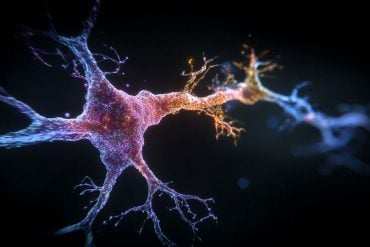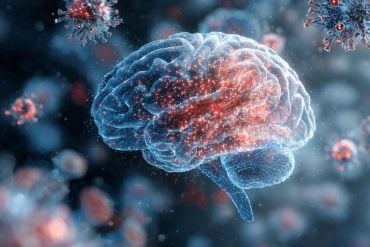Summary: New research shows that people tend to prefer simple explanations even when complex ones are more accurate. The study found that individuals focus mainly on visible or known causes while neglecting hidden or absent ones, leading to oversimplified reasoning.
This tendency, while often efficient, can create serious errors in judgment across areas like medicine, economics, and human behavior. By recognizing unseen factors and questioning apparent simplicity, people can improve their reasoning and avoid misleading conclusions.
Key Facts
- Simplicity Bias: People naturally favor simple explanations, even when multiple causes better explain events.
- Absent Causes Overlooked: Hidden or unmentioned factors are often ignored, leading to oversimplified conclusions.
- Real-World Impact: This bias can distort reasoning in fields like healthcare, economics, and psychology.
Source: Mississippi State University
Mississippi State University Assistant Professor Thalia H. Vrantsidis has received the Psychonomic Society’s 2025 Best Article Award for her paper exploring why people often favor simpler explanations, even when more complex explanations may be more accurate.
The Psychonomic Society, an international organization dedicated to the scientific study of the mind, annually recognizes outstanding research published in its peer-reviewed journals. Recipients of the Best Article Award are honored with a certificate, a $1,000 prize and formal recognition at the society’s annual meeting, this year scheduled for Nov. 22 in Denver.
Published in the April edition of Memory & Cognition, Vrantsidis’ “Inside Ockham’s razor: A mechanism driving preferences for simpler explanations” demonstrates that people tend to focus on causes which are present while overlooking absent causes—factors that may be relevant but are not immediately observable. This tendency can lead to an overvaluation of simpler explanations.
“People often prefer simple explanations—this is often reasonable—but there are many factors that push us toward oversimplified reasoning,” Vrantsidis said. “This can be problematic in real-world situations, from understanding economic changes to explaining human behavior. Just because one cause is apparent doesn’t mean there aren’t others at play.”
For example, when evaluating explanations for a patient’s symptoms, participants typically favored a one-cause explanation––a single disease caused the symptoms––even when a more complex, multiple-cause explanation might be more accurate, such as when a combination of two different diseases caused the symptoms.
Vrantsidis said her findings highlight the importance of considering absent or unmentioned causes and explicitly considering whether multiple factors might be at play, which can help reduce reasoning errors caused by oversimplification.
“I’ve always been fascinated by the joy people get from understanding things well—the ‘aha’ moments that come from a clear explanation,” she said. “My work explores what we value in explanations—why simplicity can be helpful and when it can lead us astray.”
The study was coauthored with Tania Lombrozo, Vrantsidis’ former postdoctoral supervisor at Princeton University. Vrantsidis earned her Ph.D. and bachelor’s degree in psychology from the University of Toronto and completed postdoctoral research at Princeton before joining MSU’s cognitive science program in the Department of Psychology in 2023.
Key Questions Answered:
A: Because they focus on visible causes and ignore absent ones, making simple explanations feel more satisfying and complete.
A: It can lead to inaccurate conclusions in real-world decisions, from diagnosing illnesses to understanding social and economic events.
A: By deliberately considering hidden or multiple causes and resisting the allure of overly neat explanations.
About this psychology and reasoning research news
Author: Chris Bryant
Source: Mississippi State University
Contact: Chris Bryant – Mississippi State University
Image: The image is credited to Neuroscience News
Original Research: Open access.
“Inside Ockham’s razor: A mechanism driving preferences for simpler explanations” by Thalia H. Vrantsidis et al. Memory & Cognition
Abstract
Inside Ockham’s razor: A mechanism driving preferences for simpler explanations
People often prefer simpler explanations, defined as those that posit the presence of fewer causes (e.g., positing the presence of a single cause, Cause A, rather than two causes, Causes B and C, to explain observed effects).
Here, we test one hypothesis about the mechanisms underlying this preference: that people tend to reason as if they are using “agnostic” explanations, which remain neutral about the presence/absence of additional causes (e.g., comparing “A” vs. “B and C,” while remaining neutral about the status of B and C when considering “A,” or of A when considering “B and C”), even in cases where “atheist” explanations, which specify the absence of additional causes (e.g., “A and not B or C” vs. “B and C and not A”), are more appropriate.
Three studies with US-based samples (total N = 982) tested this idea by using scenarios for which agnostic and atheist strategies produce diverging simplicity/complexity preferences, and asking participants to compare explanations provided in atheist form.
Results suggest that people tend to ignore absent causes, thus overgeneralizing agnostic strategies, which can produce preferences for simpler explanations even when the complex explanation is objectively more probable.
However, these unwarranted preferences were reduced by manipulations that encouraged participants to consider absent causes: making absences necessary to produce the effects (Study 2), or describing absences as causes that produce alternative effects (Study 3).
These results shed light on the mechanisms driving preferences for simpler explanations, and on when these mechanisms are likely to lead people astray.








